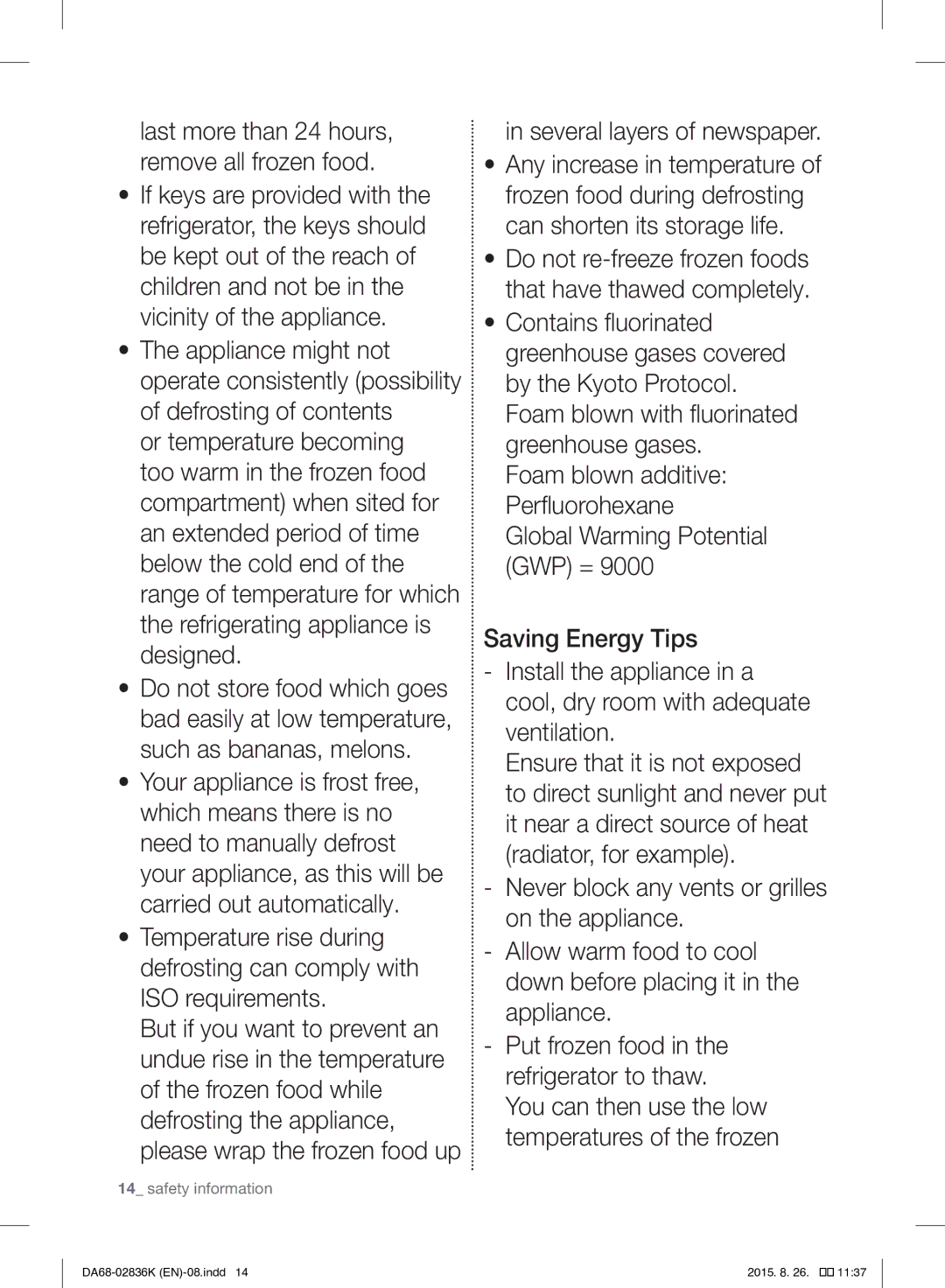
last more than 24 hours, remove all frozen food.
•If keys are provided with the refrigerator, the keys should be kept out of the reach of children and not be in the vicinity of the appliance.
•The appliance might not operate consistently (possibility of defrosting of contents
or temperature becoming too warm in the frozen food compartment) when sited for an extended period of time below the cold end of the range of temperature for which the refrigerating appliance is designed.
•Do not store food which goes bad easily at low temperature, such as bananas, melons.
•Your appliance is frost free, which means there is no need to manually defrost your appliance, as this will be carried out automatically.
•Temperature rise during defrosting can comply with ISO requirements.
But if you want to prevent an undue rise in the temperature of the frozen food while defrosting the appliance, please wrap the frozen food up
14_ safety information
in several layers of newspaper.
•Any increase in temperature of frozen food during defrosting can shorten its storage life.
•Do not
•Contains fluorinated greenhouse gases covered by the Kyoto Protocol. Foam blown with fluorinated greenhouse gases.
Foam blown additive: Perfluorohexane Global Warming Potential (GWP) = 9000
Saving Energy Tips
Ensure that it is not exposed to direct sunlight and never put it near a direct source of heat (radiator, for example).
You can then use the low temperatures of the frozen
2015. 8. 26. |
��![]()
![]()
![]() 11:37
11:37
